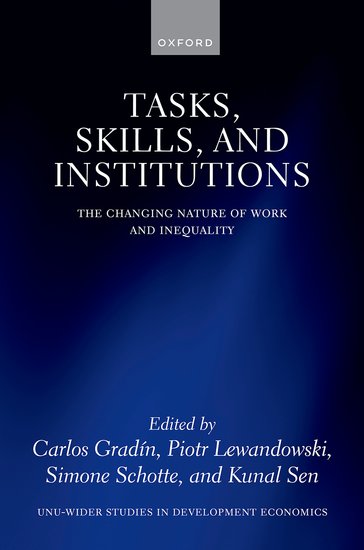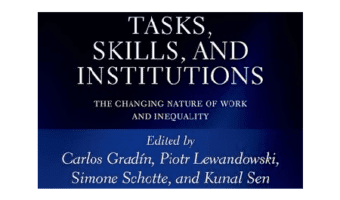Carlos Gradín, Piotr Lewandowski, Simone Schotte, and Kunal Sen edited the volume investigating the trends in earnings inequalities in developing countries to determine the main drivers. The book includes a cross-country analysis and country case studies of 11 low- or middle-income countries that have experienced strong transformations.
In their chapter, Piotr Lewandowski, Albert Park, and Simone Schotte created country-specific routine task intensity of occupations for 87 countries that cover 75% of global employment and presented stylized facts on the global divergence in the de-routinisation of jobs. This chapter was initially disseminated as IBS Working Paper 08-2022.
The authors of country studies use the country-specific routine task intensity and O*NET task measures to decompose changes in earnings inequality in 11 developing and emerging economies, including India, China, Indonesia, South Africa, Argentina, and Brazil. They also study the role of education and structural change. Country studies show these labour markets undergo de-routinisation but find little evidence of job and wage polarization that are common in high-income countries. Changes in education structure and returns to education seem common drivers of earnings inequality changes in emerging and developing economies. Country-specific institutions, such as minimum wage, are relevant too.

The book is available as open-access pdf here

